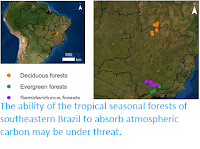One hundred and seventeen people are now known to have died and more than one hundred and forty more are still missing after a series of landslides and flash floods hit the Brazilian city of Petrópolis in Rio de Janeiro State on Tuesday 15 February 2022. The incident happened following a rainstorm which brought more than a month's rain in three hours, making it the worst such storm recorded in the state since 1932. Landslides are a common problem after severe weather events, as excess pore water pressure can overcome cohesion in soil and sediments, allowing them to flow like liquids. Approximately 90% of all landslides are caused by heavy rainfall. In the worst incident over 80 homes were destroyed by a single landslide that hit the neighbourhood of Morro da Oficina. In addition to the dead many hundreds more have been injured and/or displaced from their homes, with many of the displaced now staying in temporary accommodation in schools, sports centres, and other civic buildings.
Southern Brazil has a rainy season that lasts from October to March, with peak rains from mid-November to mid-January, however, this year's rains have been exceptionally strong. Brazil has suffered a string of flood-related disasters in recent years, most notably in 2011, when over 800 people died. The country has a rapidly growing population, with little effective urban planning, which has led to sprawling urban developments springing up with little thought to natural hazards, and in particular poorer neighbourhoods often expanding up unstable hillsides, with the result that when floods occur (which is not unusual) communities are often quickly overwhelmed. This year's exceptional rains have led to more widespread flooding, which may also persist for longer, and there is a distinct danger that without determined action the death toll may exceed that of 2011. Such events are becoming increasingly common in Brazil, something which many climatologists are citing as direct evidence of global warming.
See also...



Follow Sciency Thoughts on Facebook.
Follow Sciency Thoughts on Twitter.




